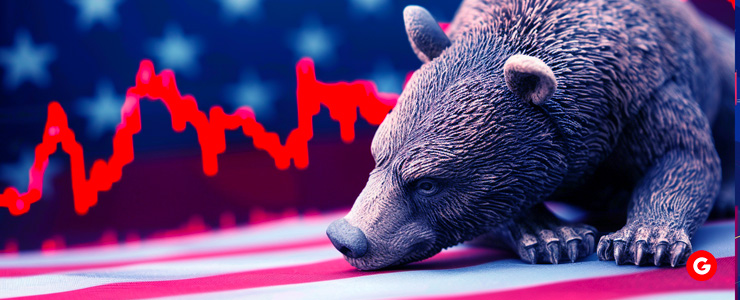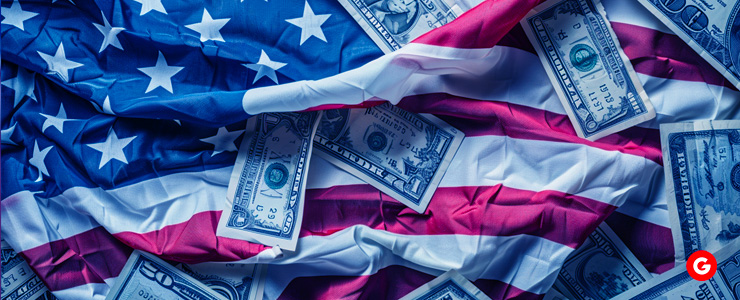Forex (short for Foreign Exchange) is an active market that involves a global marketplace for exchanging national currencies. National and international elections constitute a major threat to the financial market. This article will discuss how elections affect forex trading strategies and offer solutions for these problems.
Why do Elections Cause Market Volatility in Forex?
High-stakes elections, especially, pose a threat to the realm of politics. They could affect investor sentiment, currency, and values.
Hence, there is a need to remove such uncertainty.
Uncertainty Around Economic Policy Shifts
Here are a few critical factors listed that are responsible for this volatility:
Platform Differences
When political parties offer various leadership systems, they also refer to different types of economies in their manifestos. Supposedly, a party that supports more government spending on programs such as social services may suggest increased taxation.
However, an ideologically different party can advocate for a different action, such as a fiscally conservative one, to maintain low taxes and reduce spending.
Impact on Investor Confidence
Investor’s expectations mainly concern anticipated future economic returns on investment. The article mentions that more confidence is usually required in their economic policies if a different government is anticipated in the next term. This policy can result in lower investment and capital controls, affecting foreign exchanges.
Market Speculation
Many forex instruments are flooded with anticipation and consequences of government change during election seasons. Traders and large-size investors also take stock positions based on these speculated changes, which can cause a rapid rise in stock prices.
Reasons for Political Instability
Contested Elections
Inconclusive elections determine the nation’s leader, who will take charge and govern the country for a long time. This lack of certainty can lead to a lack of foreign investment, destabilizing the domestic economy and eroding the value of the nation’s currency.
Policy Gridlock
A split legislative and executive means that when different parties form a government, the implementation of economic policies is sometimes almost paralyzed. This gridlock can lead to policies that foster dullness, which dampens investor confidence and adversely affects currency exchange rates.
Social Unrest
Sometimes, complications in election processes, including highly contested elections or unexpected results, cause turmoil or protests nationwide. This unrest can lead to negative wayfinding, resulting in a loss of reputation and reduced foreign investment capital, thus affecting the currency.

Global Risk Perception and Interconnectedness:
- The Domino Effect: The electoral processes in the world’s largest economies, including the US, have vast consequences throughout the financial value chain worldwide. It is essential for investors and users. These elections are seen as the perceived risks of the outcomes that affect other markets and currencies around the globe.
- Shifting Global Investment Flows: Due to changes in the global environment, investors may opt to invest in different countries due to their different political and economic structures. These movements may help raise the value of certain currencies while depreciating others.
- Currency Correlations: Exchange rates of countries that have close trading relationships or economic comparative economies generally have some level of correlation. This interconnectivity means one election result within one country may depreciate another country’s currency.
Strategies to Counter the Market Volatility
While elections create turbulence in the market, information about effective strategies to ward off such uncertainties is necessary. Effectively navigating the market is a necessity to form strategies.
Below are a few strategies to consider:
Deep Dive into Fundamentals:
Political Platforms: Assess the candidates’ plans for economic reforms. Find information and statistics on taxes, expenditures, import and export policies, and laws. This article explores the relationship between macroeconomic policies that largely influence a country’s economic development and stability. That aspect is commonly called appreciation/depreciation.
Central Bank Policy: One should be extremely cautious when analyzing the market, especially the claims made by central banks before and during the election campaigns. Central banks can use or maintain interest rates at certain levels, or quantitative easing (QE) techniques can be used to control inflation or boost the economy. These actions tend to have quite an effect on a country’s currency exchange rate.
Global Economic Interconnectedness: Thus, it can be deduced that the political decisions of the heads of state elected in major economies can affect other countries in various ways. As for important external factors, shifts in political personnel in the United States can cause significant changes in world trade flows and influence the value of currencies around the globe.
Stay Informed, But Filter the Noise:
Develop a News Filter: Limit your sources to credible partners like Bloomberg, Reuters, and other business and financial newspapers, as well as the official websites of the central bank. Eliminate many critiques and focus more on specific quantitative numbers and decisions made outside of power.
Utilize Technical Analysis: However, technical analysis can be quite helpful when defining the best times to buy or sell assets during high fluctuations. Learn to understand measures such as moving averages, the Relative Strength Index (RSI), and Bollinger Bands to assess the current market climate and possible price shifts.
Develop Scenario Planning: Consider the various results and likelihood of different elections and their implications for certain currencies. This can help you understand how the market will likely react and, thus, plot out a backup strategy for your trades.
Diversify Beyond Currencies:
Hedge with Commodities: Some examples of assets, including gold or oil in your investment portfolio, should be considered. These assets typically fall or rise directly opposite to how the US dollar performs during volatile periods. Currencies tend to strengthen when the value of the country’s exports rises, and the dollar weakens when the price of its imports increases, making commodities a hedge against potential losses.
Explore Stock Market Correlations: Subjective evidence focuses on specific types of stock in the market, which may perform well or poorly depending on the outcome of the voting process. To determine other potential relations, it may be worth studying opportunities to invest in stocks or ETFs that correspond to your forex operating strategy.

Risk Management in a Volatile Environment:
Tighten Stop-Loss Orders: When market fluctuation occurs, reducing the size of your stop-loss orders might help reduce your losses if your stock positions turn south quickly.
Reduce Position Sizing: While aiming for significant gains, you should lower the size of each trade you make. This way, you can ensure that you are in the game even when a few trades you conduct are bad.
Mastering Short-Term Trading Strategies:
Focus on Technical Analysis: Each of these indicators is ideal for short-term trading, especially during active monetary trends. It is also necessary to examine short-term catalysts for signs of price reversion through moving averages and support/resistance analysis.
Scalping Strategies: Scalping is a trading technique that aims to make small, frequent profits from minor price fluctuations during a trading day. It can sometimes be highly profitable, especially when the market is volatile. Still, it can only be successful with the proper skills, including patience, fast response, and trend analysis skills.
Day Trading Strategies: Day trading involves continual opening and closing trades within the same day. It helps traders stop out after a certain time of trading and eliminates the idea of holding on to positions at night when news events may cause gaps.
Trading With a Reliable Platform
Election times are some of the most vulnerable periods in the financial markets. Hence, traders should use the most reliable and easy-to-use forex trading platform. FXGiants is, therefore, one of the best for users to consider when it comes to forex trading.
Our platform is regulated by competent financial authorities, guaranteeing a qualitative and protected trading environment. We provide various currencies and define the necessary pairings for the trading cycle to match elections. We offer a wealth of educational resources to assist you in becoming a more informed trader. They provide enhanced and better trading tools and systems for completing transactions.
Conclusion
Various factors hinder Forex trading and user experience. However, the correct tools and strategies can eliminate these hindrances, leading to a smooth user experience.
DISCLAIMER: This information is not considered investment advice or an investment recommendation, but is instead a marketing communication
